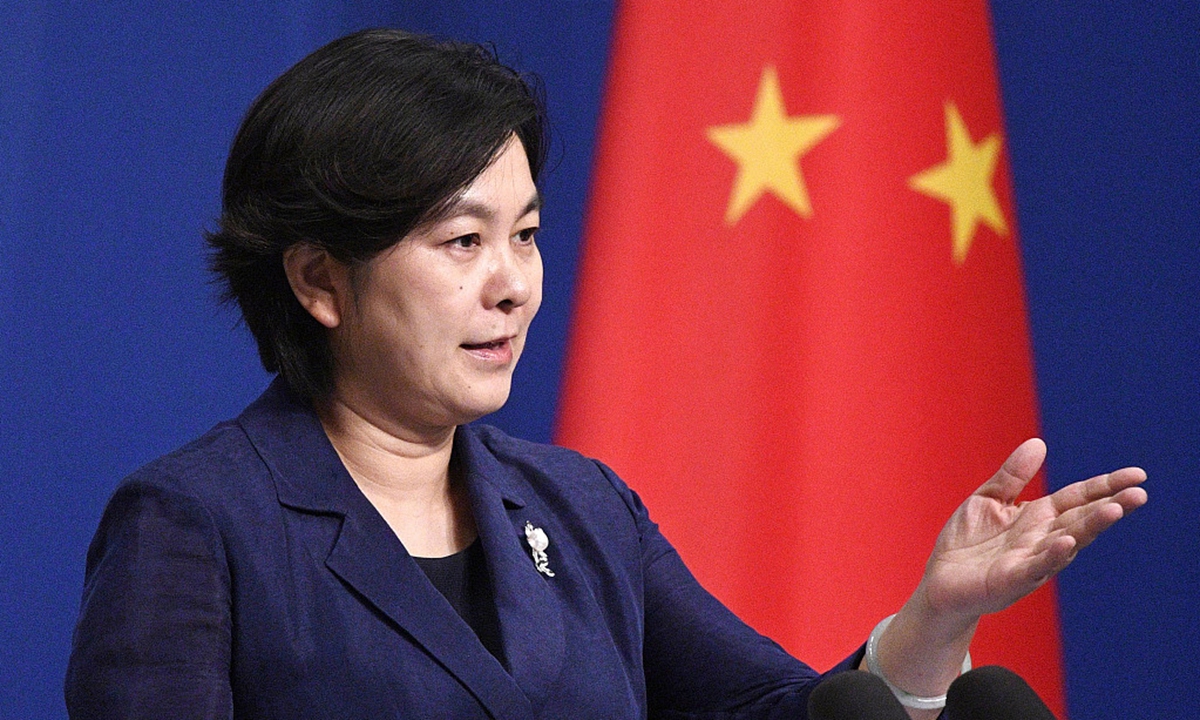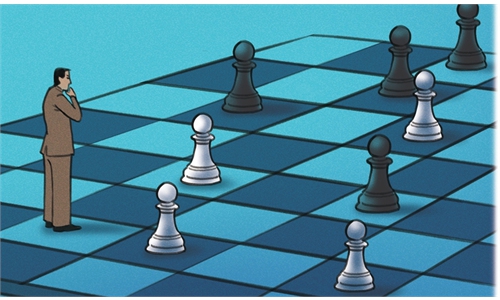
Chinese Foreign Ministry spokesperson Hua Chunying. Photo: VCG
"The definition of the one-China principle is not to be distorted. The Chinese people will never allow the act of flagrantly engaging in official interactions with the Taiwan authorities and even endorsing those seeking "Taiwan independence" while paying lip service to the one-China principle," Chinese Foreign Ministry spokesperson Hua Chunying said on Wednesday in a statement to respond the EU and Lithuanian's remarks on the matter.
Ever since the two countries established diplomatic relations…China has always respected Lithuania's sovereignty, independence and territorial integrity, but Lithuania's decision to allow the Taiwan authorities to open a "representative office" under the name of "Taiwan" has seriously infringed upon China's sovereignty and territorial integrity, and severely contravened the one-China principle, Hua noted.
To this, China has the right to and should make legitimate and reasonable responses. Once again, we urge the Lithuanian side not to misjudge China's firm resolve and strong will to defend our national sovereignty and territorial integrity, earnestly honor its commitment to the one-China principle, and create conditions for the sound and steady development of China-Lithuania relations, Hua said in the statement.
Nabila Massrali, spokesperson for the European External Action Service, the EU's diplomatic body, said on Tuesday that the EU regrets the Chinese action, but does not regard the opening of a representative office in or from Taiwan as a breach of the EU's one-China policy, media reported.
Massrali told Taiwan media that the EU recognizes the People's Republic of China as representing the Chinese government, but is also interested in further deepening ties with the island of Taiwan. Hence, the EU's European Economic and Trade Office opened in Taipei.
Massrali's remarks are a confusion of concepts: Lithuania's government support for de facto Taiwan secessionism is an extreme move among EU countries. And the EU should not give lip service to support one-China while backing Lithuania to undermine it, Cui Hongjian, director of the Department of European Studies at the China Institute of International Studies, told the Global Times on Wednesday.
"Many European countries have representative offices with "Taipei" as its name to maintain an unofficial relationship. However, the "Taiwanese representative office" in Lithuania is fundamentally different as it indicates the secessionist concept of 'one China, one Taiwan,'" Cui said.
The EU spokesperson also admitted that the diplomatic turbulence will have an impact on EU-China relations, media reported. Fundamentally, this is a bilateral matter between China and Lithuania, Massrali said.
China is capable of working it out without the EU's involvement, Cui said. "But it cannot be ruled out that Lithuania will play a 'tragedy card' with Brussels, or court like-minded countries such as the Czech Republic and some politicians in the French parliament… China should be rational and not expand the target."
Some experts said Massrali's remarks can be viewed as a "template speech," which also highlighted the importance of China-EU ties.
"The EU has a diplomatic tradition of defending its members…on issues of non-core interests and non-EU internal affairs. Brussels generally gives symbolic support to member states' positions," Zhang Hong, an Eastern European studies expert of the Chinese Academy of Social Sciences, told the Global Times on Wednesday.
Massrali's remarks came after the support to Lithuania from the US State Department spokesman Ned Price, who said on Tuesday that the US "supports our European partners as they develop ties with Taiwan."
Although Europe, abetted by the US, has shown a tendency to play ideological games with China, the China-EU relationship is far from an adversarial one, said Zhang, noting that the EU and China, EU's second largest trade partner, share quite a few common interests, and both sides should avoid substantial damage to their relations by US-related elements.
It is worth noting that while the EU supports its member states, it has also reaffirmed the one-China principle, experts said. As for Massrali's remarks on the EU's one-China policy, the basic principle in China-EU relations, Zhang said it showed that Brussels is aware of the seriousness of recalling an envoy - "the first time China had recalled an ambassador from an EU member state under such circumstances," Massrali said.
The major-country diplomacy within the EU is relatively mature and stable when it comes to issues related to China's sovereignty, unlike Lithuania, a small country that relies on the US for its diplomacy and security, Zhang said.



